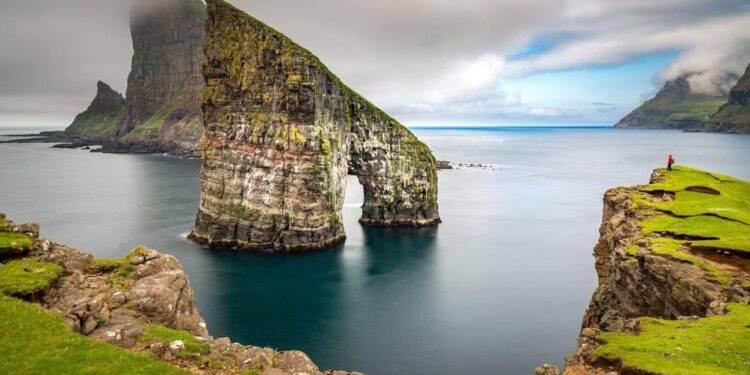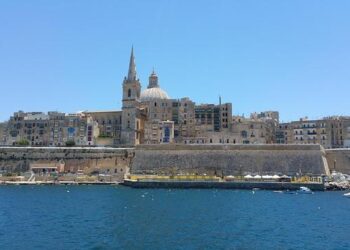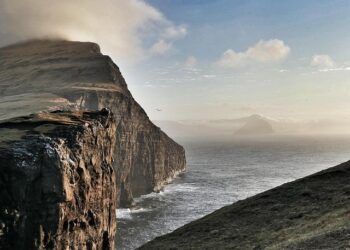The Faroe Islands have long been a focal point of controversy due to their traditional pilot whale hunts, a practice that has drawn widespread criticism from animal rights groups and conservationists. In a bold move to challenge these customs, the Sea Shepherd Conservation Society has launched the “A Call for Change in the Faroe Islands” campaign. This initiative seeks to raise global awareness and pressure local authorities to end the annual drives, highlighting concerns over animal welfare, environmental impact, and the need for sustainable alternatives. As tensions rise between cultural tradition and modern conservation efforts, the campaign marks a significant chapter in the ongoing debate surrounding the future of wildlife protection in the North Atlantic.
Urgent Need to End Grindadráp Practices in the Faroe Islands
Decades of traditional hunting practices in the Faroe Islands are facing mounting international criticism for their environmental impact and ethical concerns. The grindadráp, a drive hunt targeting pilot whales, results in the slaughter of hundreds of these highly intelligent marine mammals annually. Despite community claims of sustainable harvesting, marine conservation groups emphasize the brutal nature of the hunts and the lack of scientific evidence supporting their necessity. The Sea Shepherd Conservation Society is calling for an immediate halt to this practice, advocating for conservation measures that respect both local culture and global wildlife protection laws. The organization stresses the urgency of protecting marine biodiversity amid rapidly changing ocean ecosystems.
Key issues highlighted by experts include:
- Significant decline in pilot whale populations in North Atlantic waters
- Stress and suffering inflicted on the animals during the chase and slaughter
- Potential contamination of whale meat with pollutants, raising public health concerns
- Growing public opposition locally and internationally, questioning the ethical justification
| Aspect | Current Status | Recommended Action |
|---|---|---|
| Pilot Whale Population | Under pressure, declining | Implement scientific monitoring |
| Hunting Methods | Traditional, inhumane | Adopt non-lethal alternatives |
| Community Engagement | Mixed acceptance | Education and dialogue |
Sea Shepherd’s Campaign Strategies to Protect Marine Life and Raise Global Awareness
Sea Shepherd employs a combination of direct action and media campaigns to counteract harmful practices affecting marine ecosystems in the Faroe Islands. Their approach includes deploying specialized vessels to monitor and intervene in whale hunts, utilizing drone technology for real-time documentation, and collaborating with local and international partners to amplify their voice. By emphasizing transparency and evidence-based advocacy, they aim to expose the environmental and ethical concerns surrounding the traditional grindadráp hunts, influencing public opinion worldwide.
Key elements of their strategy feature targeted digital awareness campaigns and educational outreach that leverage social media platforms to reach a global audience. Engaging visuals, compelling storytelling, and grassroots mobilization are supported by an adaptive response framework that ensures rapid reaction to emerging threats. Below is a snapshot comparison of campaign tools and their impact metrics:
| Campaign Tool | Primary Objective | Estimated Reach |
|---|---|---|
| Marine Vessel Patrols | Intervention & Documentation | Direct Local Impact |
| Drone Surveillance | Real-Time Monitoring | Media Evidence |
| Social Media Campaigns | Global Awareness & Mobilization | Millions Worldwide |
| Educational Partnerships | Community Engagement | Local & Regional |
Policy Recommendations for Sustainable Fisheries and Enhanced Marine Conservation Enforcement
To safeguard the marine ecosystems surrounding the Faroe Islands, urgent legislative reforms must be enacted focusing on stricter quotas and transparent monitoring systems. Authorities should implement mandatory onboard observer programs to ensure real-time accountability, alongside enhanced satellite tracking of fishing vessels. Additionally, partnerships with independent conservation organizations can strengthen data collection and verification, fostering greater trust and collaboration between local communities and regulators.
Enforcement agencies require increased funding and specialized training to effectively deter illegal, unreported, and unregulated (IUU) fishing activities. Establishing a regional task force dedicated to rapid response and conflict mediation will address violations more efficiently. The following measures are recommended for immediate adoption:
- Community engagement initiatives empowering local fishers as stewards of sustainable practice
- Seasonal fishing bans to allow reproductive cycles to replenish stocks
- Investment in alternative livelihoods reducing economic dependence on high-risk fishing methods
| Policy Action | Expected Outcome | Timeline |
|---|---|---|
| Mandatory Vessel Monitoring | Improved compliance and transparency | Within 12 months |
| Seasonal Fishing Moratorium | Fish stock recovery | Annually during spawning |
| Community Conservation Programs | Increased local stewardship | Ongoing |
In Summary
As the Faroe Islands continue to draw international attention over their hunting practices, the Sea Shepherd Conservation Society’s “A Call for Change” campaign underscores the urgent need for sustainable and ethical solutions. With growing global scrutiny and increasing public awareness, the campaign aims to foster dialogue and inspire action toward protecting marine life in the North Atlantic. Whether this call will prompt meaningful change remains to be seen, but the momentum generated by Sea Shepherd and its supporters marks a pivotal moment in the ongoing debate surrounding conservation and cultural tradition in the Faroe Islands.
















